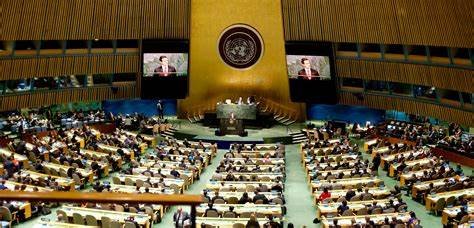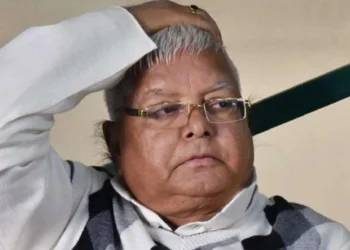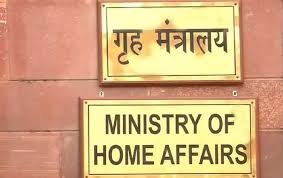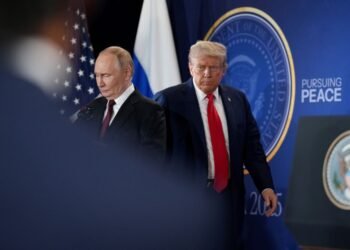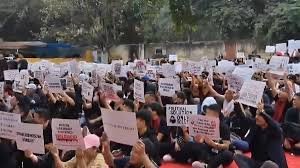The latest exchanges between Israel and Iran, triggered by Israeli strikes on nuclear facilities and followed by Iranian missile barrages on Tel Aviv, underscore the UN’s structural paralysis.
BY Navin Upadhyay
June 14, 2025 – As the Israel-Iran conflict escalates with unprecedented airstrikes and missile barrages, the United Nations (UN) stands on the sidelines, its inability to enforce peace or hold powerful nations accountable underscoring its diminishing relevance. The latest flare-up, marked by Israel’s Operation Rising Lion targeting Iran’s nuclear facilities and Iran’s retaliatory missile strikes breaching Israel’s Iron Dome, has exposed the UN’s structural weaknesses and political paralysis, cementing its reputation as a toothless body in the face of global crises.
The Israel-Iran Conflict: A Test of UN Efficacy
On June 13, 2025, Israel launched a series of airstrikes on Iran’s Natanz and Isfahan nuclear sites, killing senior military officials and scientists. This prompted Iran to fire dozens of ballistic missiles at Tel Aviv and other Israeli cities. The attacks, which caused significant damage and injuries, have pushed the Middle East to the brink of a broader war. Yet, the UN’s response has been limited to statements of concern and calls for restraint, with no concrete action to halt the violence.
UN Secretary-General Antonio Guterres condemned the escalation, urging both nations to “exercise maximum restraint” and warning of the risk of a “devastating region-wide conflict.” The International Atomic Energy Agency (IAEA), a UN body, noted no radiation leaks from Iran’s targeted nuclear sites but criticized attacks on nuclear facilities as “unacceptable.” These pronouncements, while diplomatically sound, have done little to alter the trajectory of the conflict, as both Israel and Iran continue to signal further military action.
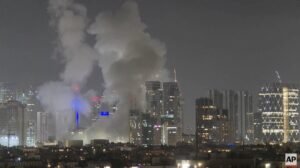
READ: Iran’s Missile Barrage Breaches Iron Dome, Strikes Tel Aviv
Structural Paralysis: The Veto Power Problem
The UN’s ineffectiveness stems largely from its own structure, particularly the Security Council, where five permanent members—China, France, Russia, the United Kingdom, and the United States—hold veto power. In the Israel-Iran conflict, this veto system has ensured inaction. The United States, a staunch ally of Israel, is likely to block any resolution condemning Israel’s strikes, while Russia and China, which maintain ties with Iran, would veto measures targeting Tehran. This deadlock, a relic of post-World War II geopolitics, has rendered the Security Council impotent in addressing major conflicts involving powerful states or their allies.
The United Nations said on Friday (June 13) it was “concerned” after Israeli strikes on Iran and called on both sides to de-escalate the situation.
“The Secretary-General asks both sides to show maximum restraint, avoiding at all costs a descent into deeper conflict, a situation… pic.twitter.com/NAfj6O0d1M
— GMA Integrated News (@gmanews) June 13, 2025
For example, past UN attempts to address Israel’s actions in the region, such as its conflicts with Hezbollah or Hamas, have often been stymied by U.S. vetoes. Similarly, resolutions critical of Iran’s nuclear program or its support for proxy groups have faced opposition from Russia and China. The result is a cycle of inaction, where the Security Council issues vague calls for peace but fails to impose sanctions, deploy peacekeepers, or enforce ceasefires.
A History of Inaction
The Israel-Iran conflict is just the latest in a series of crises where the UN has struggled to assert authority. In Syria, the UN failed to stop a decade-long civil war, with Russia vetoing resolutions aimed at holding the Assad regime accountable. In Ukraine, Russia’s 2022 invasion proceeded despite UN condemnation, with no enforcement mechanism to halt Moscow’s aggression. Even in less geopolitically charged conflicts, such as Yemen, the UN’s humanitarian efforts have been hampered by its inability to broker lasting peace.
The UN’s peacekeeping operations, once a hallmark of its influence, have also waned in effectiveness. With only about 70,000 peacekeepers deployed globally—down from a peak of 120,000 a decade ago—and a budget of less than $6 billion annually, the UN lacks the resources to intervene in high-intensity conflicts like Israel-Iran. Moreover, peacekeepers require host country consent, a non-starter in a war involving sovereign states like Israel and Iran, neither of which would welcome UN forces.
Symbolic Gestures Over Substance
The UN General Assembly, where all 193 member states have a voice, has passed numerous resolutions on Middle Eastern conflicts, including those involving Israel and Iran. However, these resolutions are non-binding and often ignored by powerful actors. For instance, General Assembly resolutions calling for Israel to halt settlement expansion or for Iran to comply with nuclear inspections have had little impact, as they lack enforcement mechanisms.
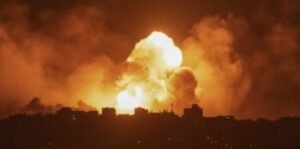 READ: Israel Launches Fresh Wave of Attacks Against Iran
READ: Israel Launches Fresh Wave of Attacks Against Iran
The UN’s reliance on diplomacy—through envoys, mediators, and fact-finding missions—has also proven inadequate in the Israel-Iran context. While UN mediators have facilitated talks in other conflicts, such as Libya, the deep-seated animosity between Israel and Iran, compounded by their alliances with opposing global powers, leaves little room for negotiation. Iran’s cancellation of nuclear talks in Oman following Israel’s strikes further illustrates the limits of UN-backed diplomacy.
Global Perceptions of UN Irrelevance
The UN’s failure to act decisively has fueled perceptions of its irrelevance. On social media platforms like X, users from diverse regions have criticized the UN as a “talk shop” or “bureaucratic relic,” pointing to its inability to prevent wars or hold violators of international law accountable. In the Israel-Iran conflict, posts on X have highlighted the UN’s silence on Israel’s strikes compared to its swift condemnation of Iran’s missile attacks, accusing it of bias or cowardice.
Analysts argue that the UN’s credibility has been further eroded by its outdated structure. The Security Council’s permanent members reflect the power dynamics of 1945, not 2025, excluding rising powers like India, Brazil, or Nigeria. Reform efforts, such as expanding the Security Council or limiting veto power, have stalled for decades, leaving the UN ill-equipped to address modern conflicts.
The Broader Implications
The UN’s toothlessness in the Israel-Iran conflict has broader implications for global governance. As states increasingly bypass the UN to pursue unilateral actions—such as Israel’s preemptive strikes or Iran’s missile retaliation—the risk of unchecked escalation grows. Without a credible international body to enforce rules, the world edges closer to a system where might makes right, undermining the principles of sovereignty and collective security the UN was founded to uphold.
Moreover, the UN’s failure to act risks alienating smaller nations that rely on it for protection against powerful actors. Countries in the Global South, already skeptical of Western-dominated institutions, may turn to alternative forums like BRICS or regional alliances, further fragmenting global cooperation.
While the UN’s shortcomings are glaring, some argue it still has a role to play. Its humanitarian agencies, like UNICEF and the World Food Programme, continue to provide aid in conflict zones, including to civilians affected by the Israel-Iran clashes. The IAEA’s monitoring of Iran’s nuclear program, despite the recent attacks, remains a critical tool for transparency. However, these efforts address symptoms, not root causes, of conflicts.
To regain relevance, the UN would need sweeping reforms, such as abolishing or limiting veto power, increasing funding for peacekeeping, and amplifying the voices of non-permanent members. Yet, these changes are unlikely, as permanent members jealously guard their privileges. In the interim, the UN risks remaining a bystander, issuing statements while the world burns.
The Israel-Iran conflict, with its devastating strikes and rising death toll, is a stark reminder of the United Nations’ decline. Hamstrung by vetoes, underfunded, and out of step with today’s geopolitical realities, the UN has failed to prevent or mitigate a crisis that threatens to engulf the Middle East. As Tel Aviv recovers from missile strikes and Iran buries its dead, the world watches a body meant to secure peace reduced to a hollow echo of its founding ideals. Without bold reform, the UN’s legacy may be one of missed opportunities, leaving humanity to grapple with conflicts it was created to resolve.



